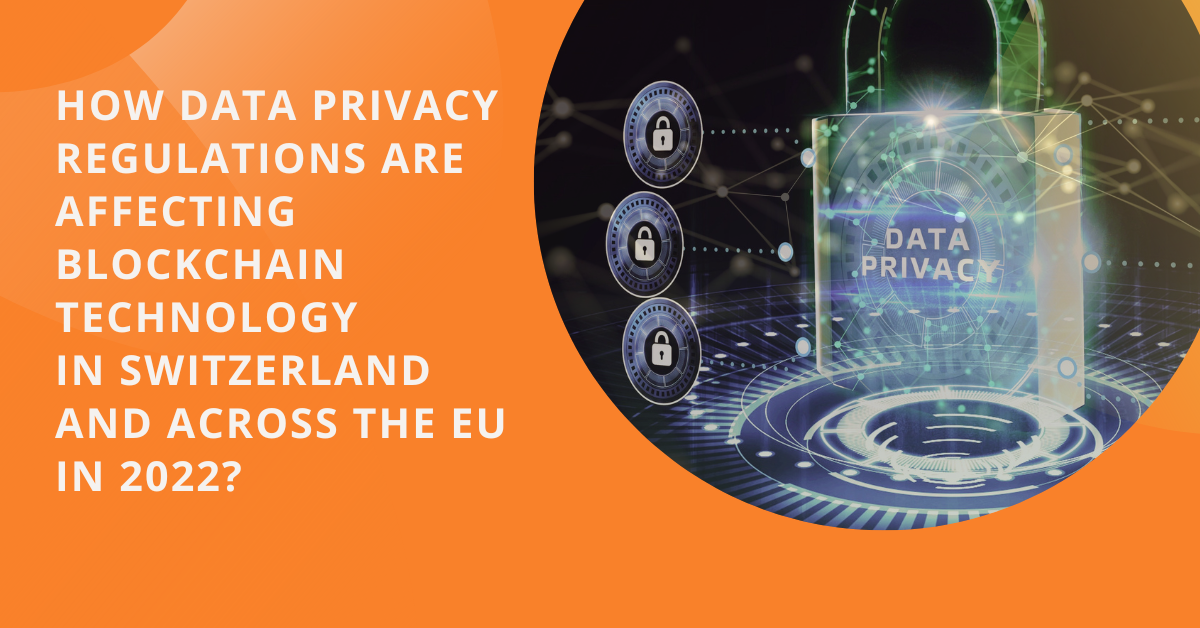How Data Privacy Regulations Are Affecting Blockchain Technology in Switzerland and Across the EU in 2022?

Blockchain technology is one of the fastest-growing industries in today's global economy. It has been applied to countless industries, and its use cases are growing exponentially with each passing year. Yet blockchain technology runs into roadblocks when it comes to data privacy regulations.
Protecting personal data is a challenge because an overwhelming volume of data is available and is now unstructured. Since it was implemented in May 2018, the EU's General Data Protection Regulation (GDPR) has generated significant commentary concerning its applicability to blockchain technology.
GDPR's applicability to the blockchain is not straightforward, and many countries have yet to issue any guidance on how their data protection laws apply to blockchain. As a result, businesses should know that data privacy regulation will continue to evolve.
Blockchain ecosystems consist of multiple players, including users, miners, developers, and exchanges. Users can create wallets that will enable them to send and receive cryptocurrency via a blockchain network. While some miners provide computing power to verify transactions, others design new applications based on blockchain technology. Because there's no solid foundation of how data protection works related to blockchain technology, it isn't easy to move forward in blockchain technology.
In May 2018, a final draft of new regulations to strengthen and unify data protection across Europe came into force. The General Data Protection Regulation (GDPR) sets a high standard for protecting personal data. The developers must be careful not to sacrifice the user's privacy while developing a blockchain, a cryptocurrency, or a related product.
To be classified as decentralized, a network mustn't necessarily be operated by a company. It must abide by a specific set of standards that characterize decentralization. GDPR guarantees a data subject's explicit rights to access and erase their data and obligates organizations to be guided by data protection and privacy principles. As a result, businesses are expected to collect only the necessary data and ensure that user privacy is treated as a core principle instead of an afterthought.
Public blockchains that allow any third party to search without boundaries or constraints freely may face some issues. Even though the GDPR is directly applicable and not subject to transposition in the individual Member States, the European Union's directive allows the Member States some room to implement their standards and rules.
How does Switzerland's Data Protection Law 2022 Affect the Blockchain Industry?
Article 13 of the Federal Act on Data Protection provides that personal data may only be processed by automated means if a person can be identified. Does blockchain meet those requirements? Article 14 (1) stipulates that data subjects are informed about any personal data and should be granted access to such information.
Article 6 of the data law protection law discusses the following:
- The right that incorrect data will be corrected
- Right of deletion of personal data
- Right to block the release of personal data
- Right to issue and transmit data (with revision)
The issue of privacy rights, or a right to be forgotten, is not included in the Swiss Data Protection Act. Also, there is no specific legislation that regulates data privacy, specifically concerning blockchain technology.
Source





